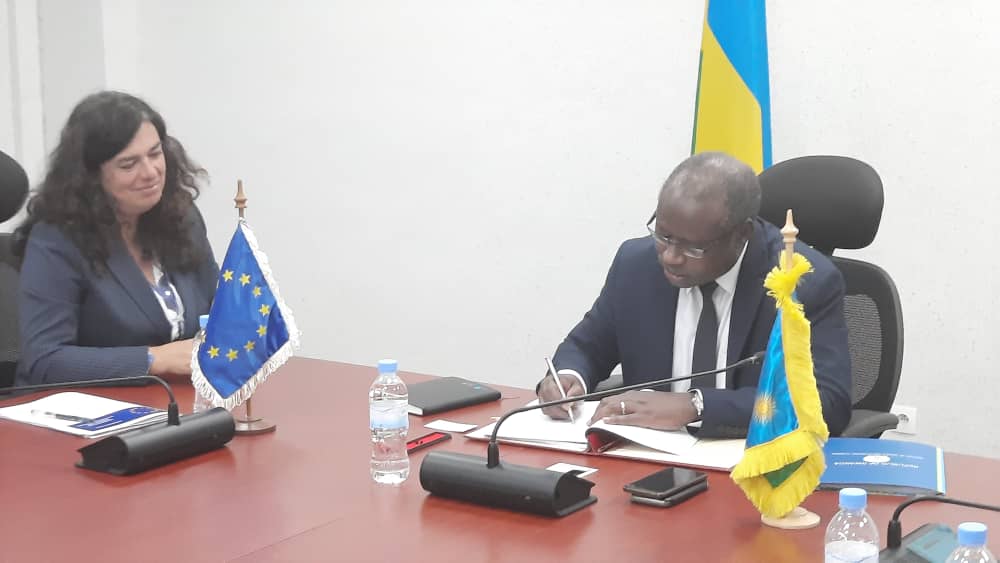Read in
By Alice Kagina
The government of Rwanda and the European Union signed a financing agreement worth €69 million (approx.Rwf72.5 billion) to support climate-smart and inclusive agriculture, on October 6.
The three-year financing agreement will be implemented in two forms; the budget support-sector reform contract (€52 million) that will target progress achieved on farmers’ incomes and better services delivery to farmers at local level including land husbandry and climate-smart agricultural practices with a focus on agroforestry and landscape restoration.
As well as complementary support (€17 million) for inclusive and sustainable high-value chains in horticulture and aquaculture.
Uzziel Ndagijimana, Minister of Finance and Economic Planning, said the financial support is a timely contribution to the National Strategy for Transformation (NST1), “For modernisation and strengthening the productivity of agriculture and livestock while promoting sustainable management of the environment and natural resources to transition Rwanda towards a Green Economy.”
The project is expected to support Rwanda’s Nationally Determined Contributions objective on climate adaptation by fostering the agricultural transition to socially and environmentally inclusive food systems and ensuring the country’s environmental and climate sustainability.
Belen Calvo Uyarra, EU designate Ambassador to Rwanda, said, based on the longstanding partnership between the European Union and Rwanda, “we are proud to be one of the key partners in the country’s path to sustainable development.”
“With this strategy, we renew the EU’s commitment to support pro-poor, sustainable, and inclusive economic growth, by focusing on a green deal for agricultural transformation and achieving Rwanda’s climate adaptation goals.”
Earlier in May, the EU committed to provide a total of Rwf278 billion (€260 million) under its Multiannual Indicative Program (MIP), to fuel its partnership with Rwanda in areas such as climate and environment, green and digital transition, energy, transport as well as health and education for a period of four years.
Read the original article on New Times.



